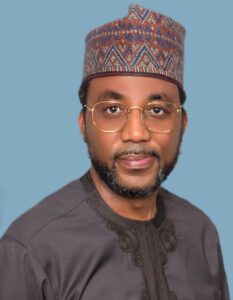By Joshua Yousouph
The Nigerian Ports Authority (NPA) has assured that the ports’ system will be fully automated by the end of 2023 which will create a platform where all port-related government agencies will coalesce together through the Single Window.

Speaking in an interview recently, the Managing Director of the Nigerian Ports Authority, Mr. Mohammed Bello Koko noted although the agency has started automating some of its processes, there is a need to have full automation of all processes in the ports. He stated that the agency has consulted the International Maritime Organization (IMO) regarding the deployment of the Port Community System, which is an Information Technology solution which will accommodate the sharing of information among other government agencies and stakeholders.
He also disclosed that consultants from the IMO are presently in Nigeria, visiting the offices of relevant government agencies such as the Nigeria Customs Service (NCS), Nigerian Immigration Service (NIS) and other stakeholders of the Port on how to develop the Single Window.
In his words: “We have begun full automation of all our processes. We currently have the Oracle E-Business solutions where we have the Oracle Financial, Oracle Hyparium and Oracle Budgeting. But there is a need for us to automate all other processes so we got the International Maritime Organization to consult with the Nigerian Ports Authority towards the deployment of what we call the Port Community System. The Port Community System is not an IT solution that will do away with E-customs or other IT platforms that other stakeholders have but it is supposed to be a platform where everyone can plug in.
“The IMO has come in with a regulation and requirements for all Port to automate fully by 2025. We have set up a target for ourselves for 2023 and the IMO is funding some of these. The first phase was done virtually and it has been concluded
This week, the IMO consultant visited Nigeria and they are currently in Lagos where they are carrying out an on-a-spot assessment which will take 10 days after which they will go and come back again and the final part will be funded by the Nigerian Port Authority.
Commenting on the Electronic Call-Up system for trucks, the NPA helmsman stated that the agency has decided to unbundle the system, thereby encouraging competition for the effectiveness of traffic control in and out of the port. He also noted that the electronic call up will be extended to the Onne ports and others where there is high traffic of port activities.
He said, “the truck call-up system was deployed to automate the manual manifest system of trucks and we believe that it has improved traffic flow and reduced gridlock, especially around the Apapa area”.
“But we believe there is also a need to introduce competition because competition brings efficiency. Stakeholders have been pushing for the unbundling of the truck call up system. We are working on that and we will see how that goes. We believe it is time to do that so we can also extend it to other ports. Onne Port is becoming extremely busy and we think we need to deploy the electronic call-up system there also”, he said.
Speaking further, Bello-Koko stressed the need for the reconstruction of the Tin Can Island Port noting that its facilities have gone beyond its life span. He noted that the estimated budget for the reconstruction of the Tin Can Island Port is over $600m. He informed that the agency has been taking proactive steps to source for funds to rehabilitate the port as the remedial works done by the agency are no longer tenable and economical.
He specifically gave some funding options for the construction of the Tin Can Island Port which include, sourcing funds from multilateral agencies, the Federal government’s approval of 40 to 50 per cent of NPA’s yearly turn out to the Consolidated Revenue Fund, or the full funding by Terminal operators.
He disclosed that: “We all agree and know that Tin Can has reached probably the end of its life cycle and it needs total reconstruction. What we have been doing in the past is remedial work and we believe it is no longer tenable and economical. What we need to do is a holistic and full reconstruction of Tin Can.
Read Also: Training, Certification Of Freight Forwarders Will Be Our Focus — CRFFN Chairman
“We have sat down with the Terminal Operators to see ways to rehabilitate it and there are many options. The first option is to get a holistic design rather than let the Terminal Operators individually reconstruct their berth. We believe it is better to have a complete full design so that NPA decides on how to do that. The first option is for Nigerian Port Authority to fund the reconstruction of Tin Can Island port. The current estimate is over $600m to reconstruct Tin Can at the existing berth. So how do you fund it?
“We have been proactive enough to start looking for funding options and we have started having discussions with multilateral agencies that will fund this reconstruction. The other option is to go to the government and request that the NPA use a particular percentage of the funds it is transferring every year to the Consolidated Revenue Fund to fund the reconstruction of Tin Can”.
“We transfer about N60bn every year. So if the government should approve 40 or 50 per cent of that money for the construction. We believe we do not need to borrow. The other option is to do a hybrid funding where NPA funds parts of it and the multilateral agencies provide funding for the other percentage. The final option is for terminal operators to fund this reconstruction, but the issue here is that all the terminal operators do not have the same financial capacity to fund the reconstruction”, Bello-Koko noted.
Kindly like us on Facebook















